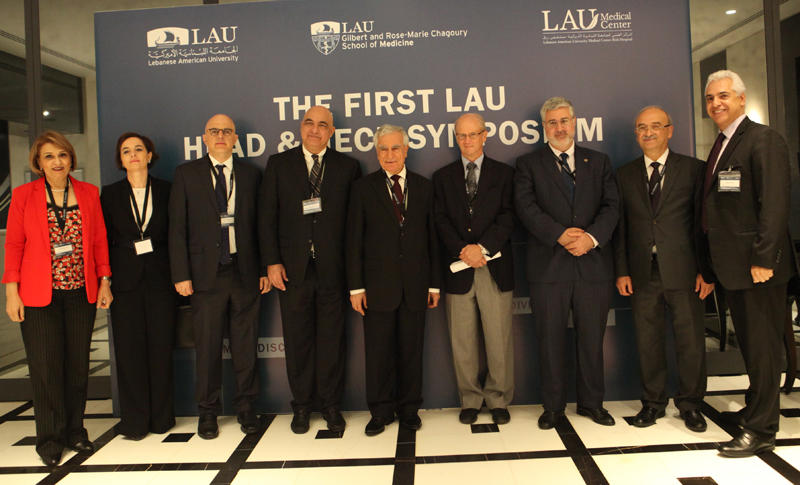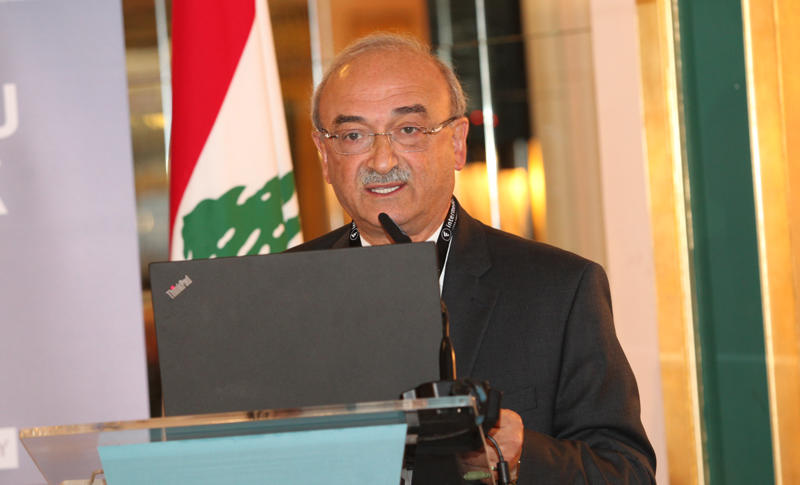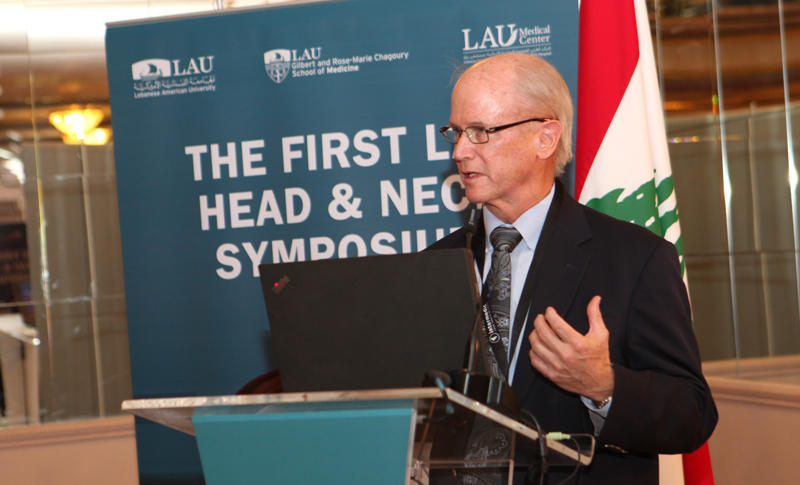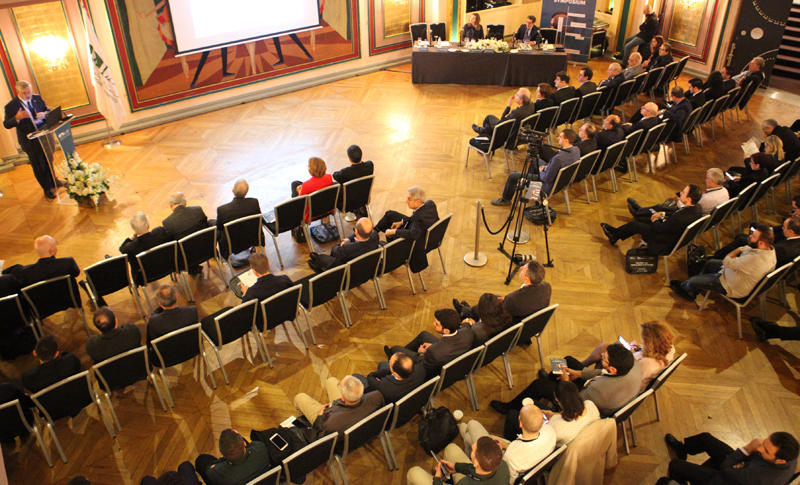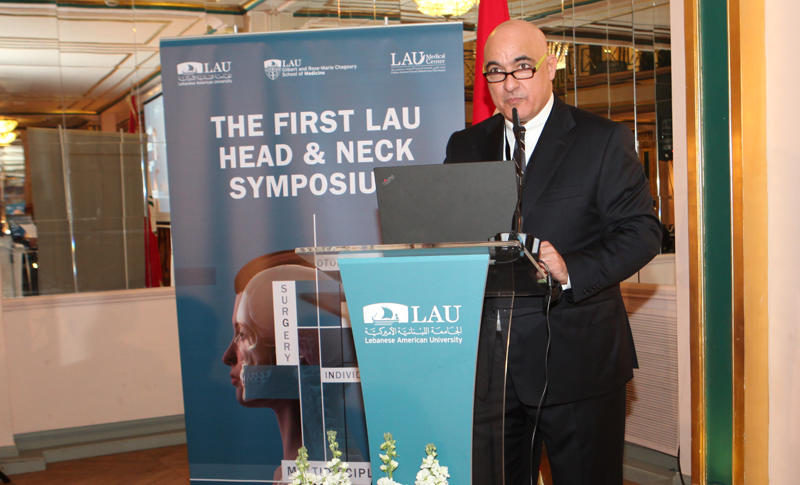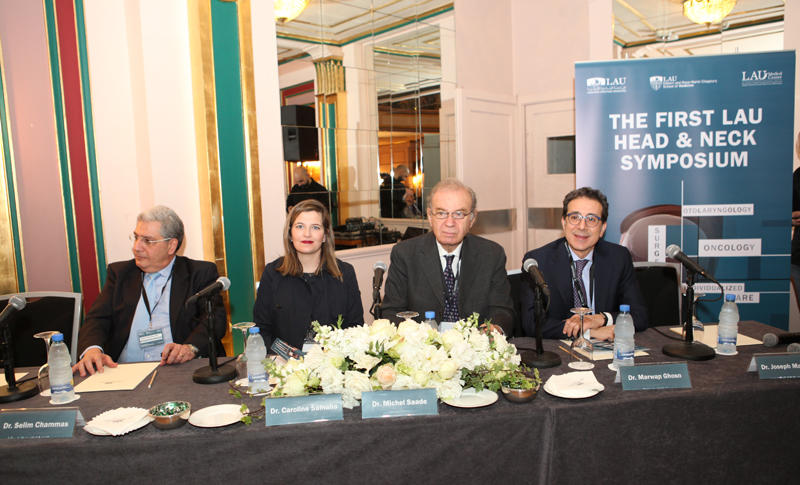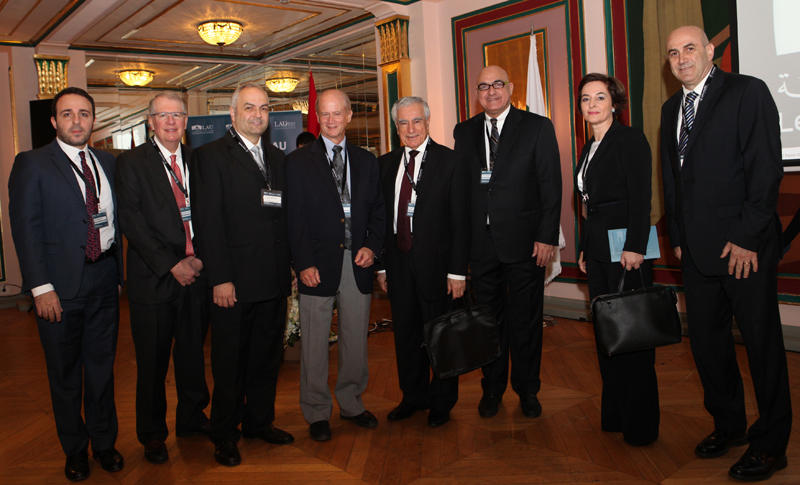Head and Neck Symposium Draws International Experts
Experts from around the world confer on the importance of collaboration in treating head and neck cancers.
LAU proudly hosted its first Head and Neck Symposium in February at Le Bristol Hotel in Beirut. Medical professionals and students in head and neck oncology from around Lebanon and the world participated in this first-of-its-kind event. The theme was clear: Collaboration and a multi-disciplinary approach to patient care are the key to the successful treatment of head and neck cancers.
As LAU President Joseph G. Jabbra welcomed attendees, he emphasized the symposium’s objective: “Specialization is very important, but collaboration is more important so that patients can obtain the benefits of advancements in different fields.”
The symposium was organized by Dr. Alain Sabri, chairman of the Department of Otolaryngology-Head and Neck Surgery and assistant dean at the Gilbert and Rose-Marie Chagoury School of Medicine. Sabri and symposium co-chairman, Assistant Professor Dr. Rami Saade, brought together the top names in the medical field, including Dean of LAU’s School of Medicine Dr. Michel Mawad and American University of Beirut (AUB) President Dr. Fadlo Khuri. All medical professionals from the School of Medicine are also physicians at the LAU Medical Center-Rizk Hospital.
The symposium also featured prominent leaders in head and neck oncology from the United States, including Dr. Kerry Olsen, professor of Otolaryngology and Head and Neck Surgery at the Mayo Clinic in Minnesota, and Dr. Randal Weber, professor of Otolaryngology and Head and Neck Surgery at MD Anderson Cancer Center in Houston, both pioneers in their fields.
At the opening of the symposium, Sabri commented, “Now is an exciting time in head and neck oncology; this symposium is important for sharing the latest advances in our field to offer the best care for our patients and education for our students.”
Saade stated that the symposium “will be one of many to establish the highest standard of care for our head and neck cancer patients. Our patients are central to all our strategies. We want the best oncologic controls to optimize functional outcomes. This can only be achieved through a multidisciplinary effort.”
Each session highlighted new advances in the treatment of head and neck cancers, including groundbreaking robotic technology, de-escalation therapy, induction chemotherapy and immunotherapy. But the common thread weaving these topics together was the importance of a multi-disciplinary approach in oncology treatment. Each of the distinguished speakers reiterated the importance of providing individualized patient care as part of a coordinated team of medical professionals.
Dr. Fady Geara, professor and chairman of the Department of Radiation Oncology at AUB, underlined the importance of the medical community working as a team. “Collaboration and honest competition [among LAU and AUB] helps promote excellence; this is the obligation of big institutions.” Olsen agreed: “[This symposium] brings experts together so that we can learn from each other in order to optimally manage the disease and treat patients appropriately.”
Though the symposium focused mainly on treatment, the topic of prevention was a constant, especially the role of smoking and human papillomavirus (HPV) in the rise of head and neck cancers. Olsen noted that oropharyngeal cancer is one of the fastest-growing malignancies in young people, and that Lebanese youth are at especially high risk. When asked how these rates can be slowed, Olsen specified three solutions: “Education of the youth so that they understand the negative effects of smoking, the implementation of [government] policy targeted at eliminating smoking in public places, and attaching a high product cost. These are the only ways to effectively reduce smoking, which leads to head and neck cancers.”
Khuri noted that Lebanon ranks third in the world for per-capita smoking. He pointed to cultural acceptance of smoking as a major reason for the problem, but was positive that things are changing. Quoting the famous Arabic poet Al-Mutanabbi, Khuri said, “Great things are accomplished by those who aspire.”
And LAU plans on doing just that. Dr. Hady Ghanem, acting head of the Hematology Oncology Division at the Gilbert and Rose-Marie Chagoury School of Medicine, echoed the seriousness of addressing the cultural forces that drive high levels of smoking, citing LAU’s anti-smoking campaigns and the marking of World Cancer Day on campus.
By bringing seasoned doctors together with medical students in different disciplines, the Head and Neck Symposium is a step toward progress in head and neck oncology. LAU Med IV student George Abi Kanaan noted the importance of the event for his studies. “The symposium gave me the opportunity to meet and learn from the biggest names in the history of ENT.”
After the symposium wrapped up, Sabri said he hoped it paves the way for further collaboration between clinicians and institutions, and leads to the organization of many more specialized conferences “in order to encourage research, education and patient care at the more global level in Lebanon.”
For their part, visiting doctors Olsen and Weber said that they were extremely impressed by the symposium and that they were eager to return and collaborate with the Department of Otolaryngology-Head and Neck Surgery at LAU. Indeed, Olsen will be returning for a role as an adjunct professor in the department, while Weber offered the support of MD Anderson Cancer Center in Houston to advance head and neck cancer care in Lebanon to the highest levels.
